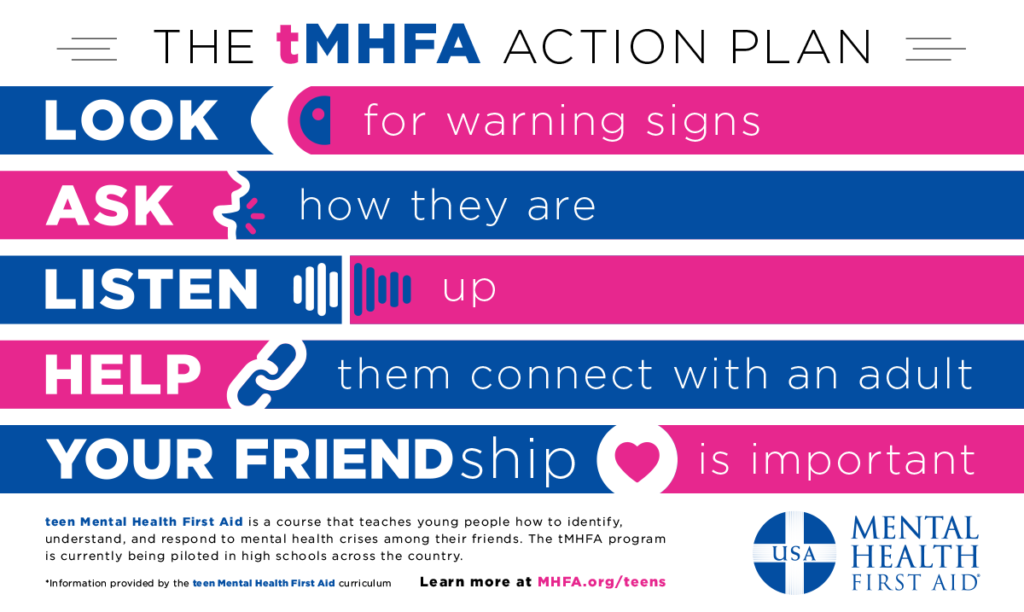If you or someone you know is considering suicide, call 9-1-1, call the National Suicide Prevention Lifeline at 1-800-273-TALK (8255), or text “MHFA” to 741-741 for 24/7 confidential counseling from the Crisis Text Line.
Peer pressure. Bullying. College applications. Extracurricular activities. High school students today face a number of personal challenges, and sometimes these challenges can be difficult to manage alone.
This pressure and stress can affect overall mental health and well-being now and in the long-term. One in five teens lives with a mental health challenge. This means that one in five teens around you is struggling with a mental health condition right now.
Do you know what to do if you see your neighbor, classmate or friend in need? Whether you are facing your own personal mental health challenge or you know someone else who is, the teen Mental Health First Aid (tMHFA) Action Plan will help you understand how to manage a crisis situation and help a friend when they need it the most.
The teen MHFA Action Plan
teen Mental Health First Aid teaches young people how to recognize the signs of mental health problems and crises, offer and provide initial support and enlist the help of a trusted adult. The most critical time to use this action plan is when a friend or peer is experiencing a mental health crisis, but the best time is before that crisis occurs.
Threatening to hurt or kill themselves
Acting recklessly or engaging in risky activities
Talking, writing or communicating about death, dying or suicide (including in schoolwork, creative writing, artwork or online)
Displays of rage or anger, being aggressive towards others, seeking revenge or threatening violence toward others
Loss of purpose or direction
Having no reason to live or no sense of purpose in life
Having a sense of hopelessness or helplessness
Feeling trapped like there’s no way out
Dramatic changes in behavior or emotions
Intense anxiety, agitation or paranoia
Sudden changes in mood
Withdrawing from friends
Decline in school performance
Changes in eating or sleeping patterns.
Remember when there is risk of harm, the most important priority is safety and connecting your friend with a responsible and trusted adult who can assist them to reduce their risks and stay safe. Never place yourself in danger while trying to help your friend, and do not try to take on more than you can handle. Taking care of yourself is an essential part of practicing effective teen Mental Health First Aid.
To learn more about how to help your peers who may be struggling with a mental health or substance use challenge, watch this video about the new teen Mental Health First Aid program, run by the National Council. This course teaches high school students how to identify, understand and respond to signs of a mental health problem or crisis among their friends. Right now, eight high schools across the country have trained students in teen Mental Health First Aid. We’re looking forward to expanding to more schools across the country in the coming years so every young person can #BeTheDifference.
